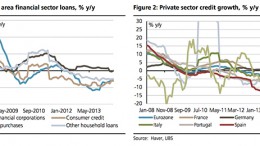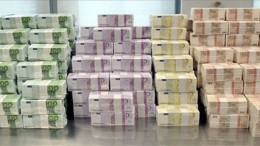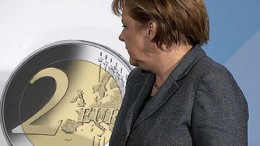“QE ends and I feel fine”
WASHINGTON | Comment by UBS analysts | The FOMC ended QE and made its Fed funds rate hike guidance a bit more data- dependent. While the funds rate is likely to remain in its current range “for a considerable time” after asset purchases end at the end of this month, rate hikes could occur sooner or later than the Fed currently anticipates depending on the evolution of economic data. This was as straightforward an FOMC statement as could have been expected at the end of QE. It does not suggest changes in Fed thinking; nor does it change our expectations for the first Fed fund rate hike in mid-2015.







